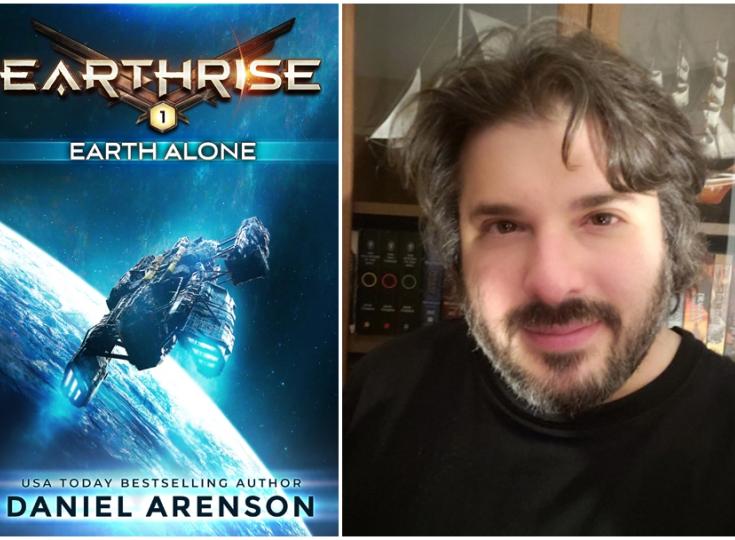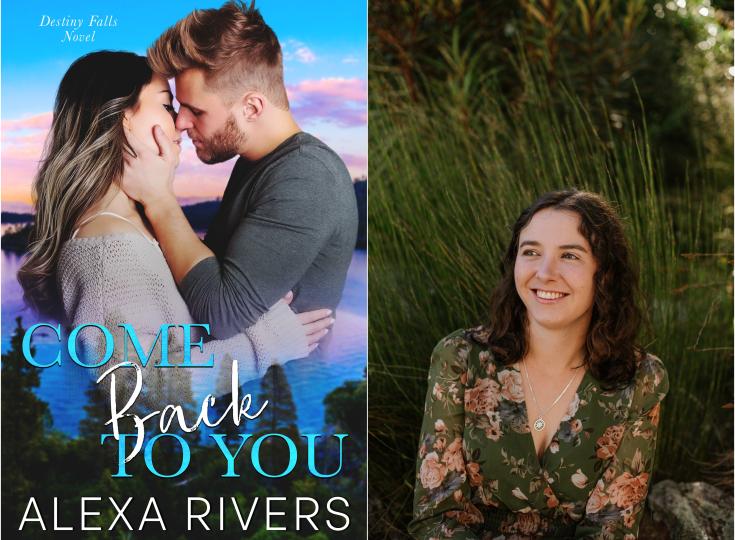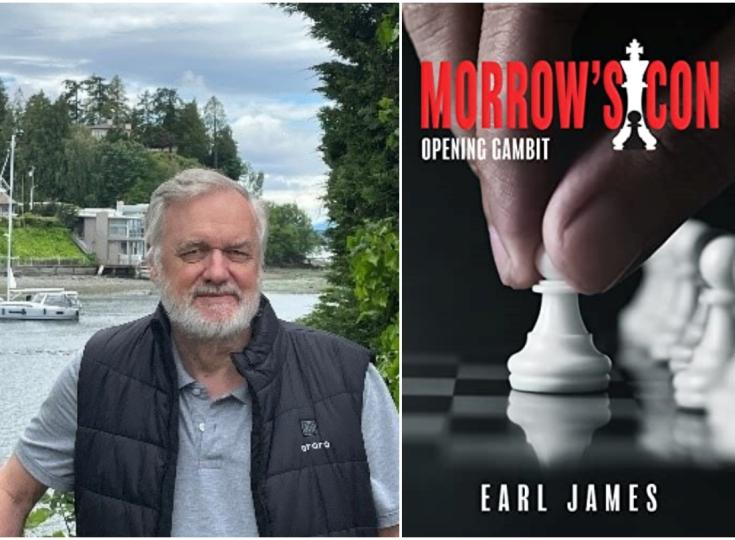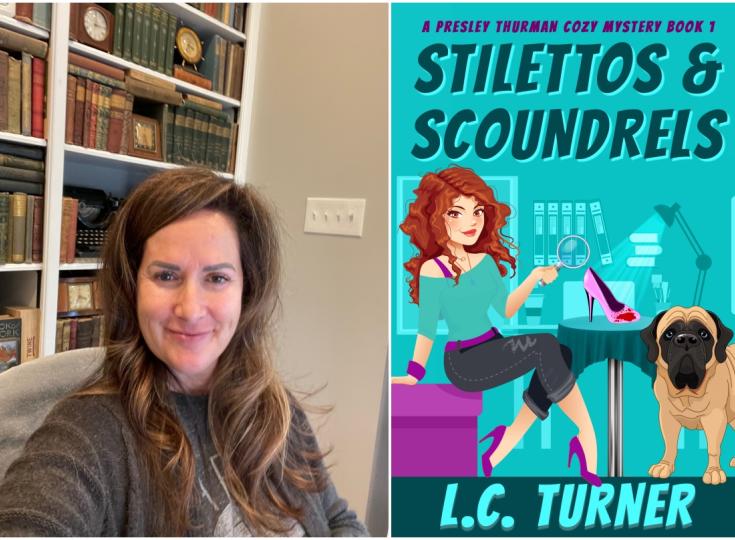Steve Moretti - Sweeping Time Travel Adventure
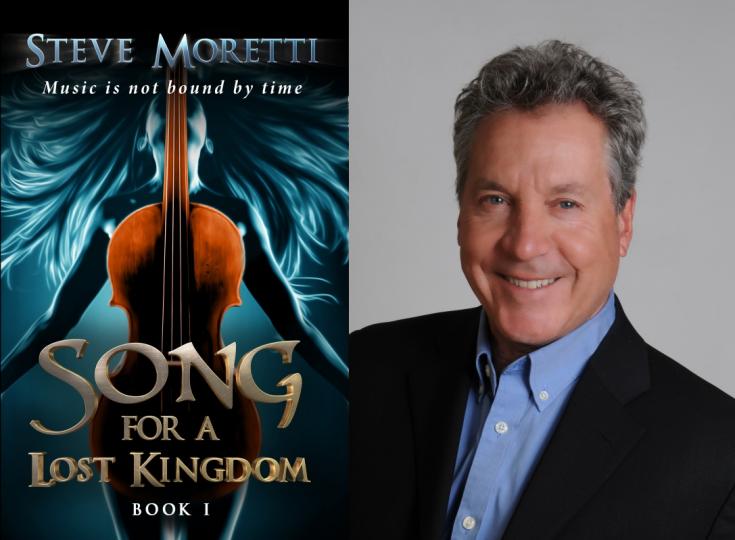
Steve Moretti writes and produces audiobooks full-time with a focus on history, art, music and science. He is drawn to time-travel stories where the past and present don’t always intersect in a straight line. Fascinated by the incredibly complex people he's met or researched, as well as the rich inner lives of fictional characters that exist only in our imagination, Moretti's characters are interesting and realistic. As our Author of the Day, he tells us all about his book, Song for a Lost Kingdom.
Please give us a short introduction to what Song for a Lost Kingdom is about.
The SFLK series is the story of two women separated in time by almost three centuries. Adeena Stuart and Katharine Carnegie are both composers and musicians – two cellists who end up in love with James Drummond, who is doomed to die shortly after the Battle of Culloden in 1746.
The connection between them begins when Adeena plays a lost score on the oldest cello ever made in the UK that has made its way to Canada as part of a touring exhibit. The Duncan Cello opens a portal that connects Adeena to Katharine and leads to the completion of their music.
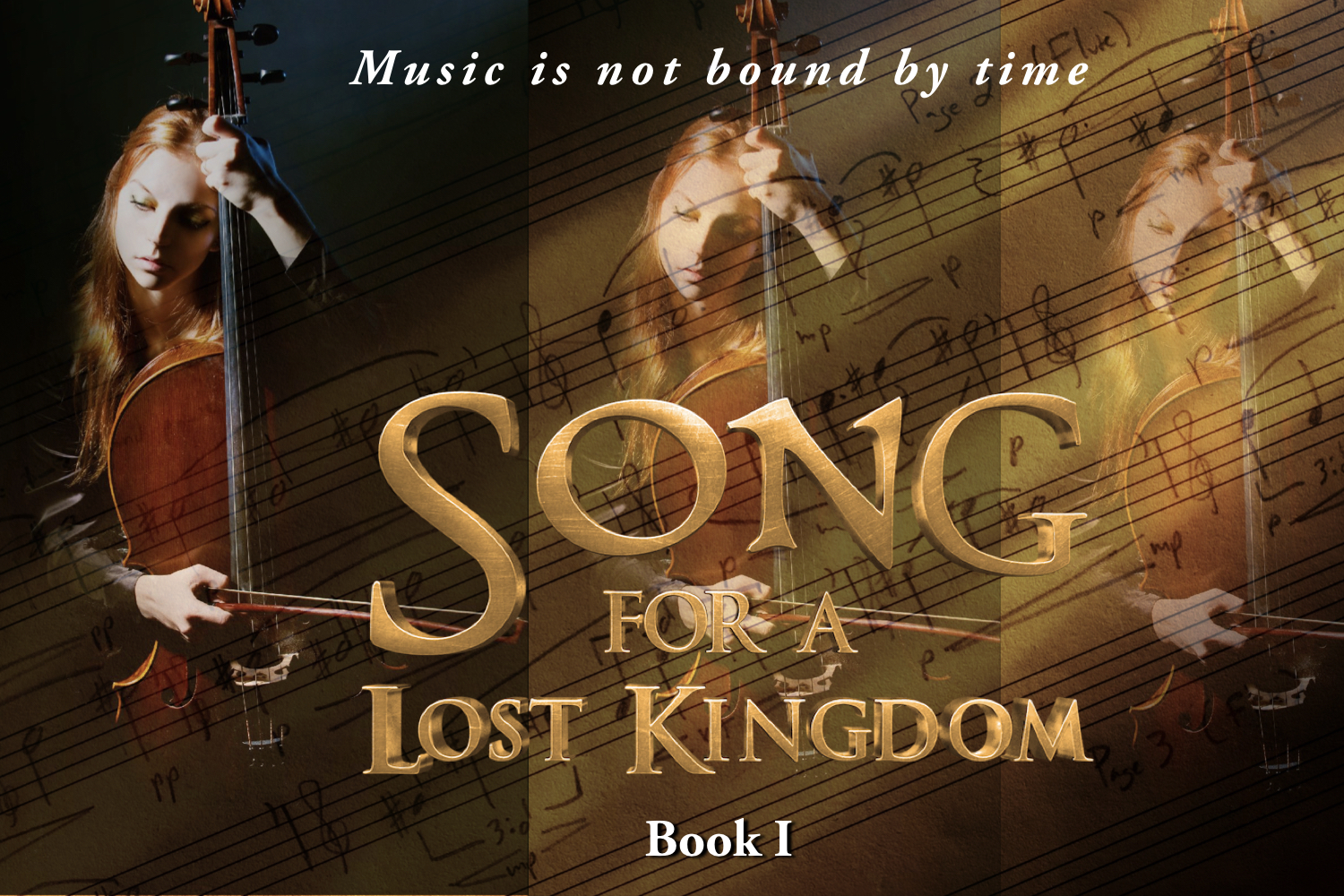
What inspired you to write about someone who gets transported to the past through music?
In a nutshell it was a fellow Canadian – Loreena McKennit.
Her music, particularly two of her albums – The Visit (1991) and An Ancient Muse (2006). The songs on these masterpieces painted vivid sound pictures in my mind. Loreena’s music, lyrics and her vocal range inspired me to write. Her music is so deeply infused with history, literature and a timeless romantic longing that feels like it can never be fulfilled.
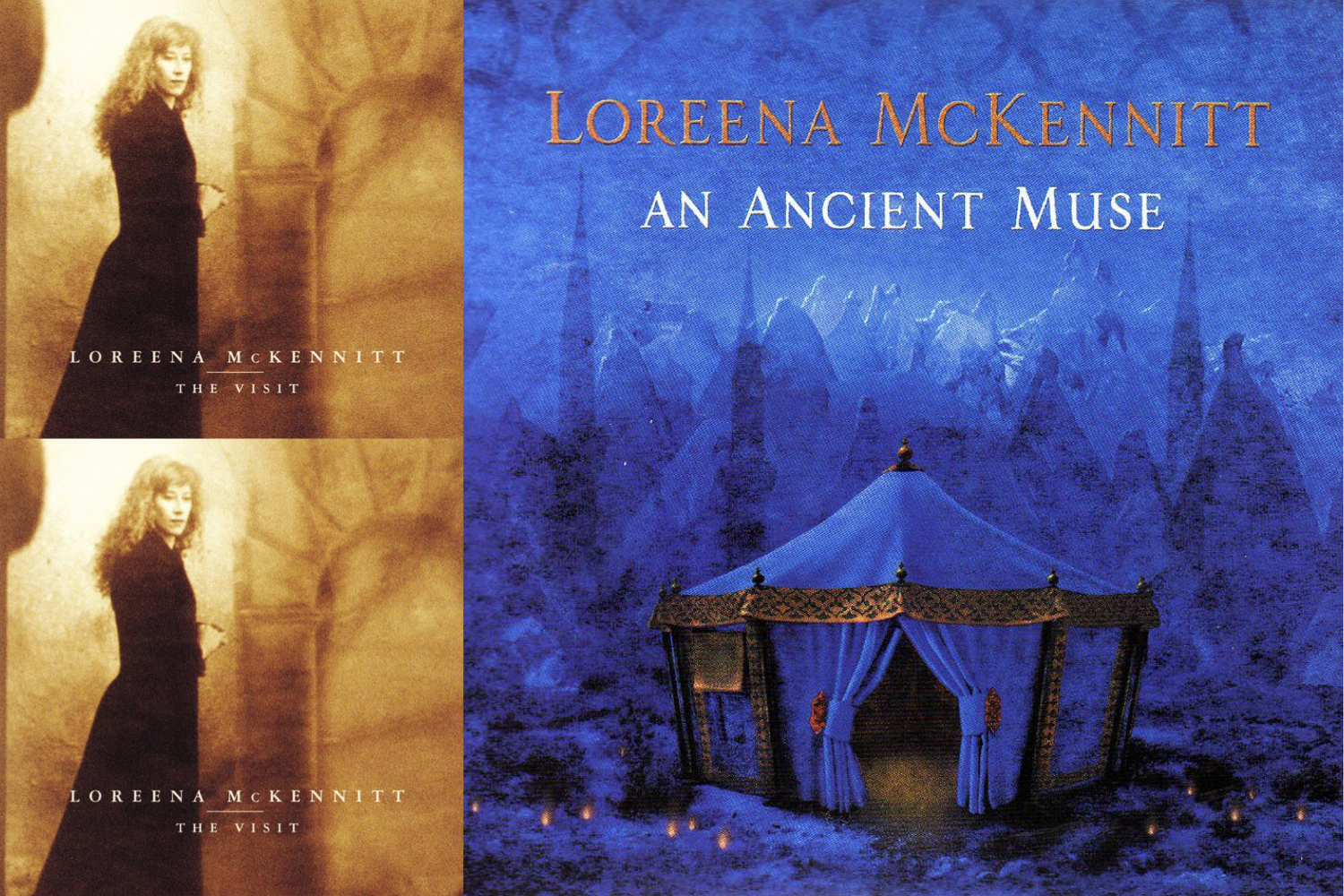
It got me thinking. What if a musician could be transported back in time by her music to a love that can never be, to a man she knows will die, but she still chooses to go back and be with him?
It was the starting point for a simple idea that began as a screenplay. But I quickly realized there were too many complexities and many layers that I wanted to explore. It would require me to get into the heads of the characters and their motivations – something that is much more difficult to do well in a screenplay.
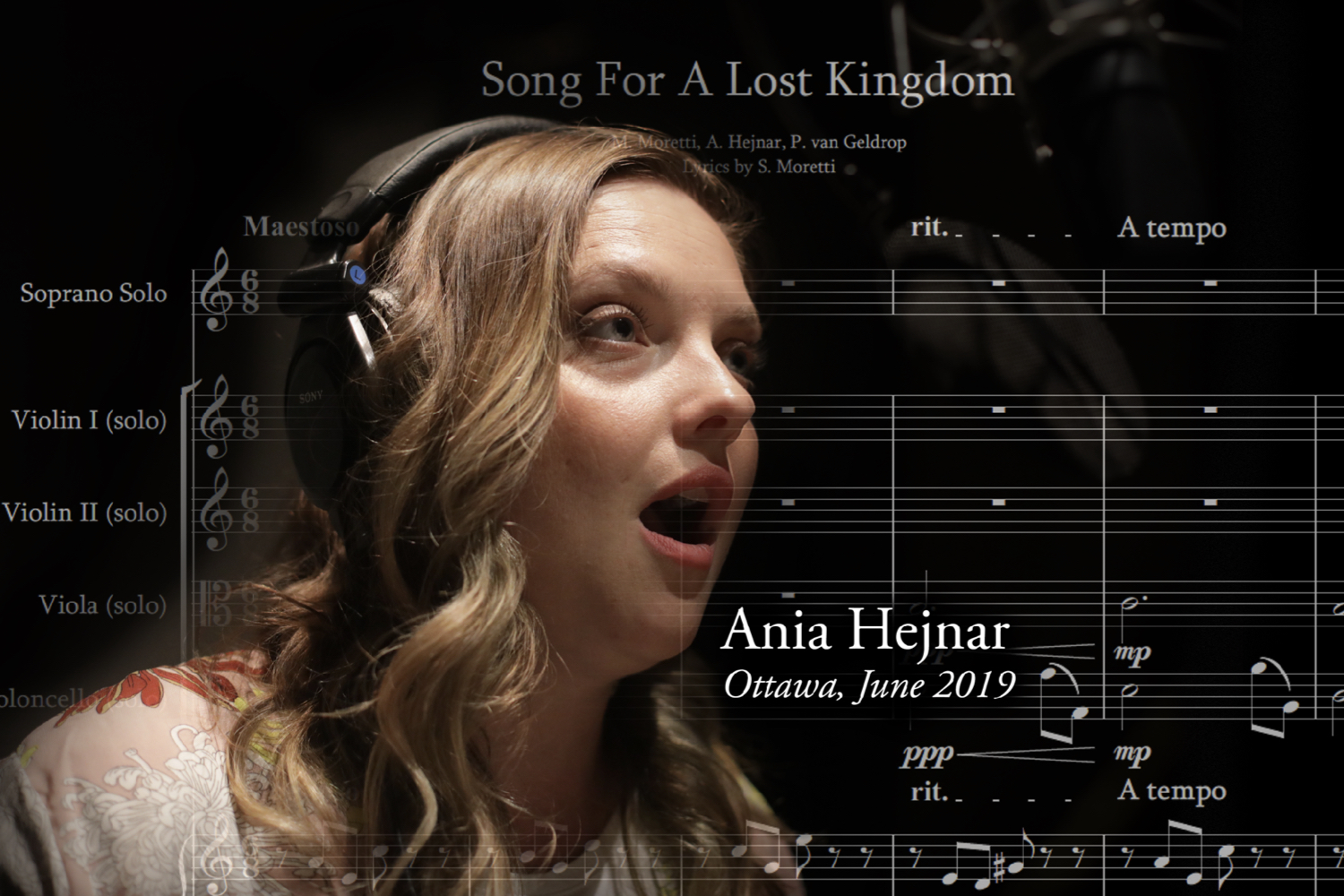
Why did you pick the 1745 Jacobite uprising as the backdrop for your book?
I blame Google Maps for this!
I chose Scotland as the location where my character would go when she went back in time. From what little I knew when I started my research, it seemed like a place of strong passions and enduring traditions.
I took to ‘flying’ over Scotland courtesy of Google’s satellite and map views. One day I ‘flew’ over the town of Montrose and started zooming in. I found a castle close by – Kinnaird. With a bit of research I learned the castle was built in the 14th Century, and had a rich history particularly in between1600 and 1800.
The Carnegie clan built it and lived there for centuries until they lost Kinnard as punishment for their support of the Jacobite rising of 1715. And so the castle became ground zero for my story.
I researched the Jacobite rebellions of 1715 and 1745, and how they ended so badly for those supporting the Jacobites. I was fascinated to see how these ‘risings’ split families apart - pitting brother against brother or sons and daughters against fathers and mothers. I began to see the outlines of a compelling narrative.
I wanted something where things didn’t work out and where a family member was facing certain death. With a bit more digging I realized the Carnegie and the Drummonds clans offered the kind of detail and history I could really sink my teeth into.
Tell us more about Adeena Stuart. What makes her tick?
Ah, Adeena!
She is twenty-nine years old and evokes strong feelings in my readers, not all of them positive. Some find her selfish, impulsive or too self-centered. She can be crude and conniving. But what drives my stubborn protagonist is her desire to compose and to perform.
Adeena has never found a way to ‘release’ the musical ideas that lie half-formed inside her. They gnaw away at her, and she seeks to get her creative fix through classical music. The cello has always been her instrument, though as a teenager she and her ‘bad-boy’ boyfriend dallied with an avant-garde rock band.
She hates rules and conventions, is passionate about music and those that create it, and has never found a man that understand what truly drives her. She admires classical composers like Johannes Brahms and Ludwig van Beethoven who struggled against great odds to ‘birth’ their music. Her father William, a university history professor, spent long evenings while she was growing up recounting the biographical details of classical music composers with stories of how their music came to be written.
Adeena began to see composition as a higher calling that demanded personal sacrifice and a somewhat reckless attitude. Any man who wants to truly connect with Adeena must recognize and accept that the desire to create and perform music is the only thing that can complete her.
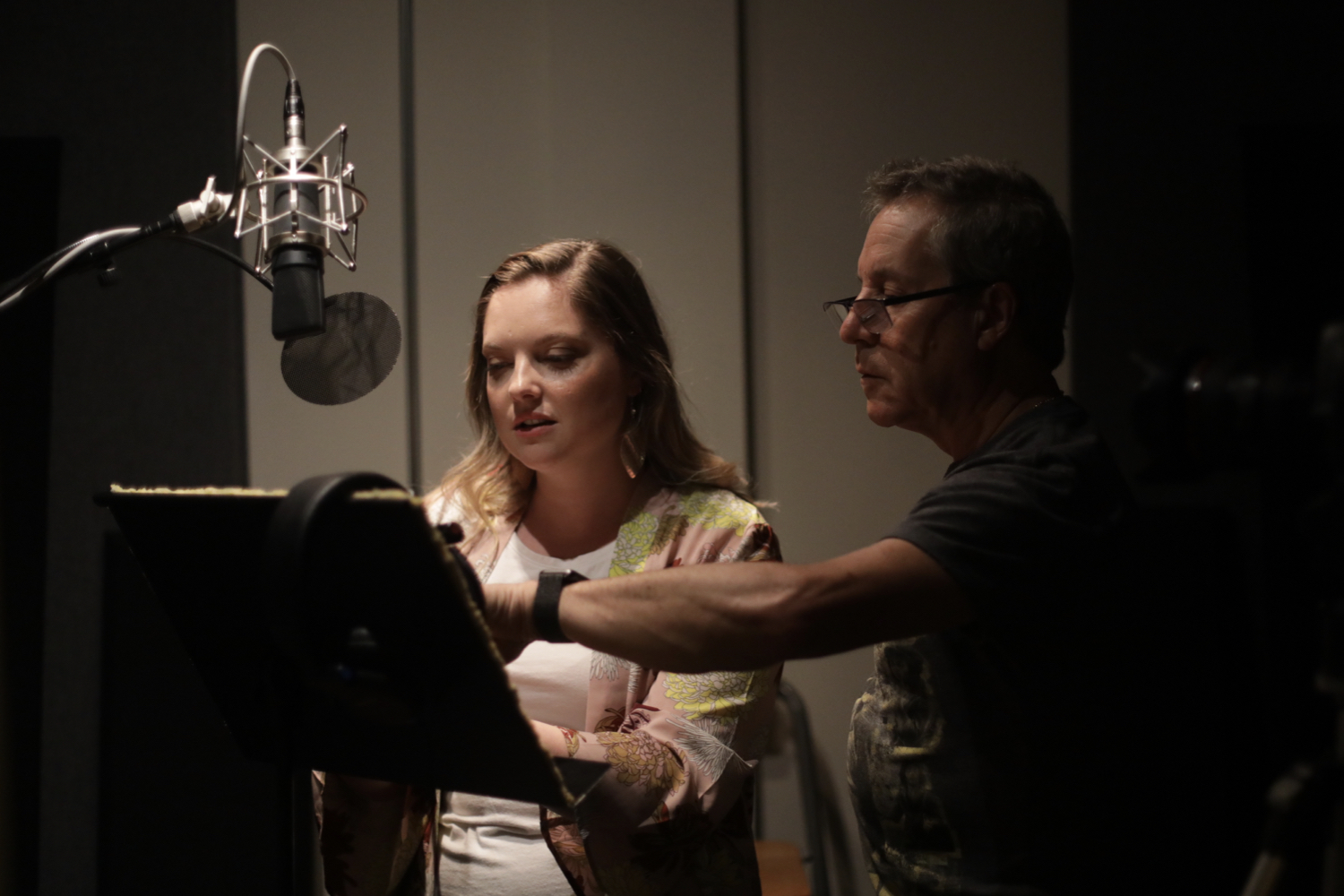
Your novel is different from many other time travel novels in the sense that Adeena doesn't remain trapped in the past but keep switching back and forth between past and present. Why did you take this approach?
I was daunted by the prospect of completely immersing my characters in 18th Century Scotland. The language, the customs, the attitudes – all required a fidelity to history that I found intimidating. My goal was to entertain readers with a good story told through a set of engaging characters. I liked the energy that would come from going back and forth in time.
Letting Adeena get her feet wet in the 18th century, and then returning to the more familiar world of 2018, was a way of easing into the past. Readers seem to like this approach, and I think it helps add depth to scenes in both the present and the past. The events are connected, and as this is ultimately a time-travel fantasy as opposed to plain historical fiction, I wanted to have a bit of fun with the idea of going back in time by playing music.
What type of music did you listen to while writing this book?
Strangely enough I can’t listen to music while I write.
I listen before and after a writing session, and I use it for inspiration. But when I am writing a scene, I try and immerse myself into the heads of my characters. I walk around, talking out loud to myself, trying to feel what they are going through. I am totally focussed on my point-of-view character and what she or he is going through in the scene.
When I’m not writing, music from artists / composers like Loreena McKennit, Enya and of course Beethoven, Mozart, Vivaldi, Brahms, etc. provide ongoing inspiration. I have a wide range of musical tastes that covers pop, rock, folk, classical, reggae, etc. But only certain composition have the ability to fuel my imagination.
How much research did Song for a Lost Kingdom require from you and what was the most interesting aspect of this research?
Too much!
Understanding the 1745 Jacobite uprising took a lot of time and reading. There are some really great books on the subject, in particular The ‘45 by Christopher Duffy and Jacobites by Jacqueline Riding. Of course, there was also a lot of online documents and articles that I found along the way such as a detailed document on the customs of Scottish country and city folk in the 18th Century.
One of the most interesting aspects I found was in regard to the role of woman in Scotland and the views and practices of marriage in the 1700’s. Woman had little legal standing, but they still had an impact on the events of the day. Factual accounts don’t provide the inner thoughts of those women, but I read enough to realize they must have had very strong opinions and been just as stubborn as the men!
Also fascinating to me, was the practice of marriage in 18th century Scotland. While a ‘regular’ marriage was the norm, with a religious ceremony and legal documents, ‘irregular’ marriages were also common. If a man and woman had sexual relations, and publicly declared their intention to be joined together as man and wife, after an appropriate length of time, about maybe a year, they would be considered ‘married’.
This is very different than what I initially thought, and I was surprised by the fact that men and women could have a sexual relationship without the woman being scorned, if they declared their intention to be married. This did lead to some problems, particularly when the man and woman had different intentions about the future of the relationship after they ‘consummated’ the marriage. So much so that inquiries were set-up to hear the cases of women who claimed they were bedded with false promises of marriage, no husband and ‘bastard’ children.
People have compared this book to Outlander by Diana Gabalon. Are you a fan of the books or the series?
OMG, yes!
I wasn’t aware of the Outlander series when I wrote my first draft of Song for a Lost Kingdom. After I discovered Diane Gabalon’s work and realized what a truly gifted writer she was and the similarities in our plots, I was discouraged. Gabalon has a gift and a level of detail and emotion in her writing that I greatly admire. I wondered if the similarities in our stories might turn readers off.
However, in the end I realized that there are real differences in the stories and in our writing styles. I feel like a novice compared to her and don’t pretend to be on her level at all. But my third-person approach, multiple character point of views and use of only real characters from history, made our novels different.
Regardless, she is a master of her craft and I have deepest respect and envy for her talent and superb story-telling.
Do you have any interesting writing habits? What is an average writing day like for you?
I write best in the morning, often getting up at 5 am – 6 am at the latest. Coffee is my addiction. Without starting my morning with a few cups, I am pretty sure I wouldn’t be able to write a single line!
My wife and I live on the outskirts of Ottawa, Canada on a large, almost rural property. I have a great view outside my office of trees, flowers and people out walking, biking, running. The changing seasons, and a wide variety of amazing and horrible weather provide inspiration.
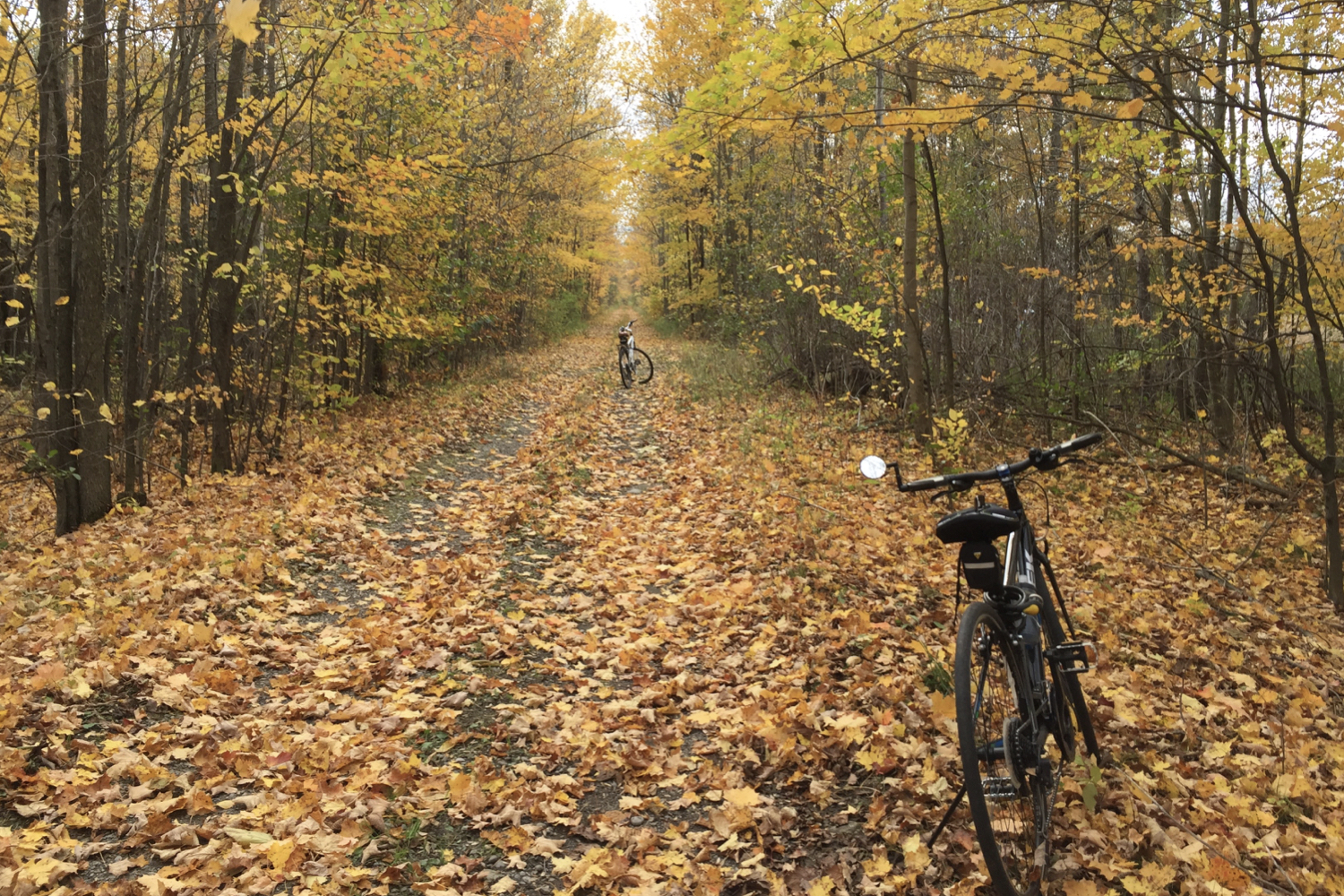
We also have four dogs, and one them, Prince, our small chihuahua/poodle, likes to nestle into my chair, while the other dogs sleep and occasionally watch me write, which I try to do most days.
We also have a cottage on a lake near Westport. There are many scenes in Book I that are based on the location of our place up on the lake. I sometimes go up there to write, and in the spring we make our own maple syrup. It’s really the perfect kind task for a writer, because most of the work involves waiting for the sap to boil down. You find yourself sitting around waiting a lot, so the writing just kind of happens, while the sap boils – hour after hour!
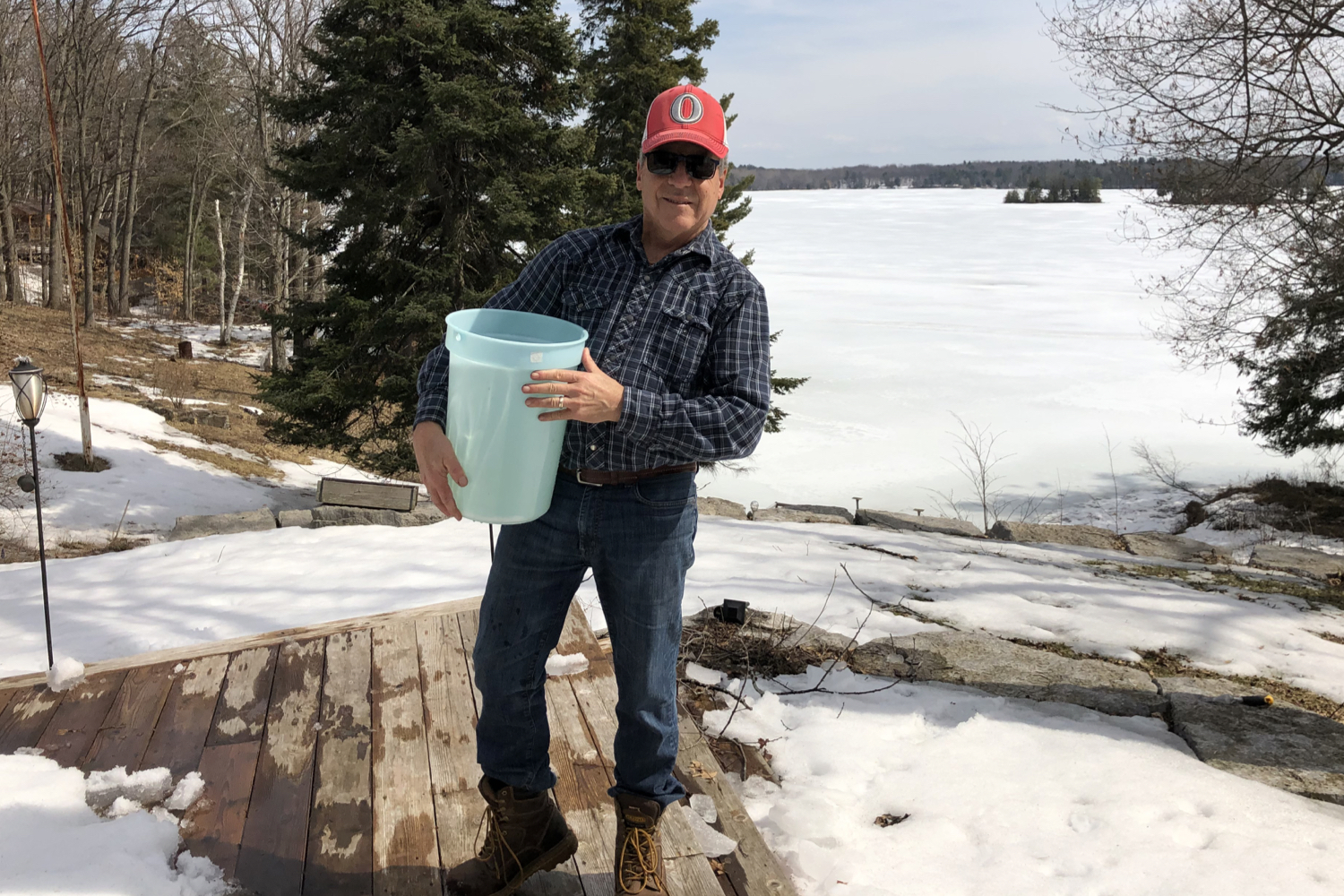
When I’m writing from home, I sometimes get stuck in a scene. I go and ride my bike for a while which seems to free up a lot of ideas and let me work through a scene and find character motivation and even dialogue. I often ask myself “what’s the worst thing that can occur to the people in this scene” and then see if there I can make that happen. Of course, not every scene ends in disaster, but many do!
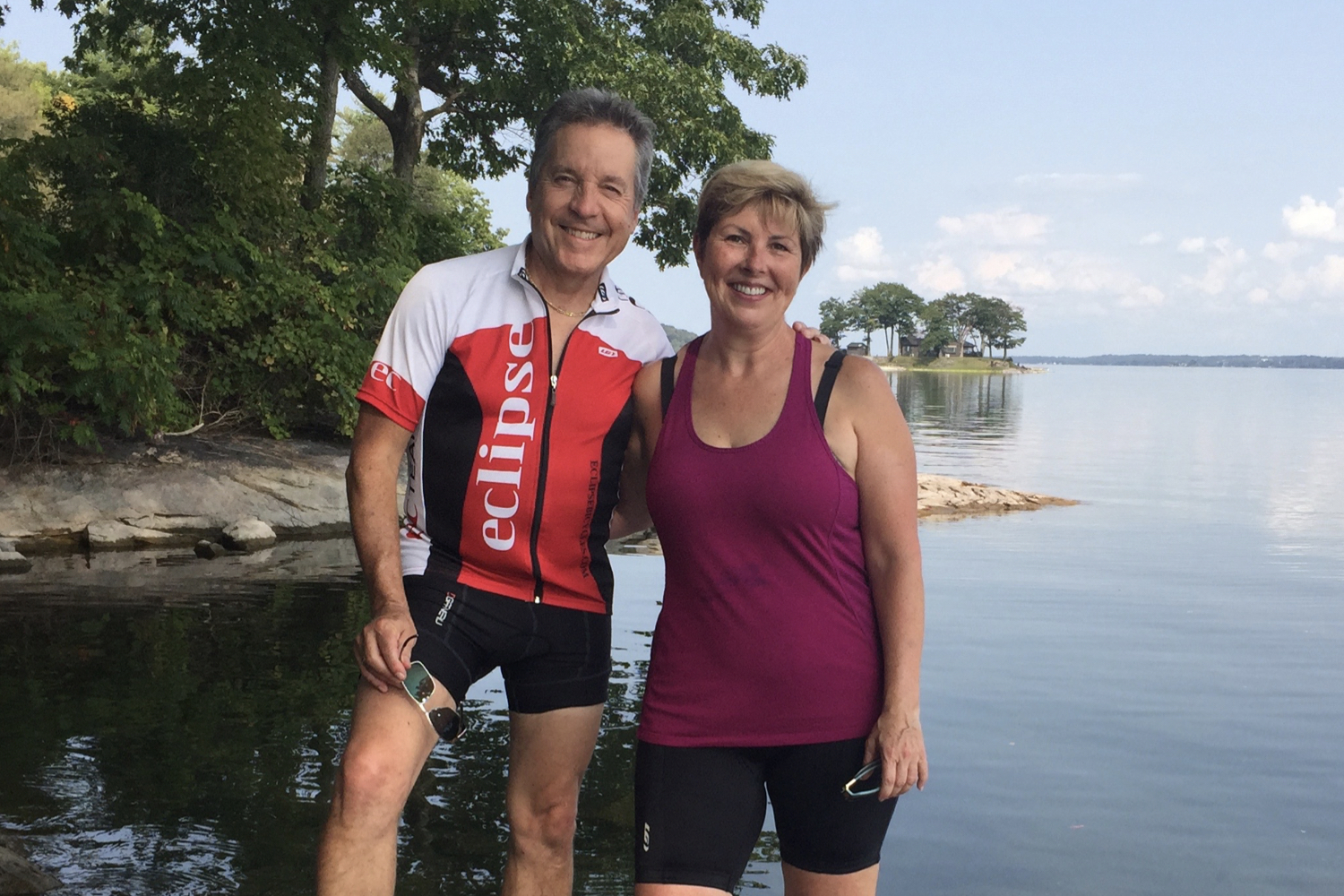
This is the first book in a series. Can it be read as a standalone? How does the next book tie in with this one?
Yes, I believe Book I can be read on its own.
The ending leads right into right into Book II. Some of the major plot points in Book I are resolved, and while the story is not over by any means, many readers have told me how much they enjoyed the story, particularly the music and time-travel aspects.
Book II takes the story to a higher and deeper level. While the first book introduces the Jacobite rising of 1745 to readers, in Book II we get to experience that final few months of the rising through the eyes of the main characters.
The Duncan Cello and Adeena / Katharine’s music is still a key aspect, but the real story is in the parallel events of 1746 and 2019 that lead to the Battle of Culloden and the medical procedures to try and save Adeena. Of course, there are many twists and turns along the way. Book I is a bit lighter overall and a less intense read. In Book II things get a bit heavy as the stakes get raised much higher.
Have changes in your own life affected any of your characters?
Yes, for sure.
As my first novel series, there are elements of my life and experiences imbedded in some of the characters, particularly with the Stuart family (Adeena, William and Jackie). My wife is a nurse, and as such I’ve been exposed to the world of hospitals and health care for many years.
I also grew up hearing a lot of classical music and learning about great composers from my parents. Also, having lived in Ottawa for over forty years, the city and my experiences here (in journalism, running my own software company, working for the Ottawa Board of Education, etc.) while enjoying the arts and culture of the capital of Canada gave me the perfect setting for the fictional characters in the present.
And with four children, each of whom experienced struggles growing up, I was able to use the emotions of raising them and some of our more memorable experiences to help infuse Adeena and her colleagues with a rich backstory that I could draw on.
What are you working on right now?
The final book in the Song for a Lost Kingdom trilogy – Book III, with a working subtitle of “The heart beats in time.” It will likely be the most fun book of the series and resolve the remaining plot issues. It will also present a few new characters and whole range of new dilemmas.
Book III will have a lot more music, music theory and some cool time-travel, sci-fi elements that I’m excited about.
I’m also working on producing the audiobooks of the SFLK series. The Prequel and Book I are recorded and being edited right now. Bethany Mason from Montana, and Tom McLean from Glasgow are the narrators. I think their vocal performances are outstanding. The books should be available on Audible and iTunes in September or October.
We have also created original music to be used in the audiobooks. You can listen to the music - ‘Song for a Lost Kingdom’ at https://www.stevemoretti.ca/sflk-music. It was written by Paul van Geldrop, Ania Hejnar and my son, Marc Moretti.
Ania is a classically trained singer, who sings in the recordings. In my humble opinion her performance is almost magical!
Do you do any other writing?
Yes, I have a blog called ‘A Brief History of Things’ You can read it at https://www.stevemoretti.ca/blog or follow me on Medium. https://medium.com/@stevenmoretti where I also publish new articles.
My blog pieces mostly profile historical characters that I find fascinating. I like to dramatize key points in their life, usually from their own point of view. I’ve written on Charles Dickens, Antonio Vivaldi, Emily Brontë, Bob Marley, Amadeus Mozart, Johannes Gutenberg and other characters from history.
Where can our readers discover more of your work or interact with you?
My website is probably the best place. https://www.stevemoretti.ca/ I am also on Twitter @morettisteve, and Instagram (moretti.steve).
I use my FB page to keep readers up-to-date. https://www.facebook.com/stevemoretti.ca/
